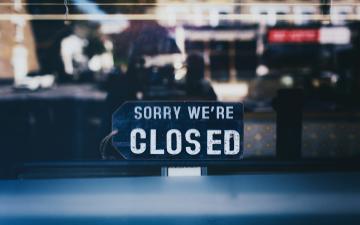
Shouldn’t we be helping those that need it the most?
Joan Harrington is the director of Social Sector Ethics at the Markkula Center for Applied Ethics. Views are her own.
The Paycheck Protection Program, part of the CARES Act, was created to help small businesses and nonprofits survive the economic hardship caused by the coronavirus. The first $350 billion allocated for loans to small businesses and nonprofits was depleted in two weeks. The funds were available to applicants who certified in good faith that the “current economic uncertainty makes this loan request necessary to support the ongoing operations of the applicant.”
These funds were allocated based on who applied first, not on a determination of who needed them most, or what service they provided. As a result, allocation of the funds favored organizations with well-established banking relationships as well as certain sectors, such as construction. Nonprofits, especially smaller nonprofits, and other less connected small businesses may not have gotten the funds they need to survive.
Congress has now allocated another $320 billion under the Paycheck Protection Program to provide loans to small business. They have set aside $60 billion for smaller banks and community-based lenders to try to address the problem of smaller businesses accessing lenders. The legislation does not differentiate based on need, leaving applicants themselves to consider whether the needs of others might be greater than their own? If a nonprofit has funds in reserve, should they forgo applying for funds to allow others without a reserve to apply? If a construction company has enough funds to survive for a few months, should they wait to apply?
The nature of this emergency is overwhelming and the thought of sacrificing for the greater good is challenging. But in many ways we are already doing it. With a widespread shelter in place mandate, we have moved from focusing on the well-being of individuals to the good of the community as a whole. We shelter in place to protect ourselves but also to protect others including our friends, neighbors, and healthcare workers. We are looking out for the common good.
So shouldn’t small businesses—nonprofit and for profit—leave emergency relief funds for the neediest among them? In the nonprofit community, many are on the front lines fighting the coronavirus through healthcare, food distribution, housing security, and more, and donations are flowing to these nonprofits. But as the emergency nature of this crisis recedes, we will need our other nonprofits more than ever; those focused on the arts, education, the environment, legal services, and other social service needs.
Shouldn’t organizations consider the common good when making the decision about whether to apply for limited funds?
A comparison might be made to unemployment benefits, which under the law are available to applicants without regard to need. Unemployment benefits are funded by payments made into a longstanding government insurance system with contributions made by the employer over time. Arguably, if you legally qualify to receive benefits, you should receive them. If you were in a car accident and were covered by insurance, you would not be expected to forgo insurance payments even if you had sufficient savings to cover the costs. With insurance, you have paid into the system to address exactly the type of hardship that has befallen you, and it would not be unethical to accept the benefits. However, in a severe economic crisis in which a state’s unemployment compensation funds are near depletion, would the decision to take the benefits be different for someone who has sufficient funds to survive? Shouldn’t a person who otherwise qualifies to receive the benefits forgo them so another unemployed, more needy person can receive benefits?
Under the Paycheck Protection Program, applicants were provided with little guidance on who should apply other than the need to “support ongoing operations.” Based on this language, many organizations legally qualified for loans. But in this unprecedented crisis, it is clear that the government will be unable to provide enough funds to address all of the need. This is the time that small businesses, both for profit and nonprofit, should be considering whether they can survive without government funds so that there will be enough for the neediest among them.
The reflection on the true needs of an organization should take place before they apply. The publicly traded restaurant chain Shake Shack applied for and received $10 million in loans. Now the company has decided to give it back. Reflecting on the many needy restaurants that were unable to get a loan, the CEO decided to return the money to the Small Business Administration “so that those restaurants who need it the most can get it now.”